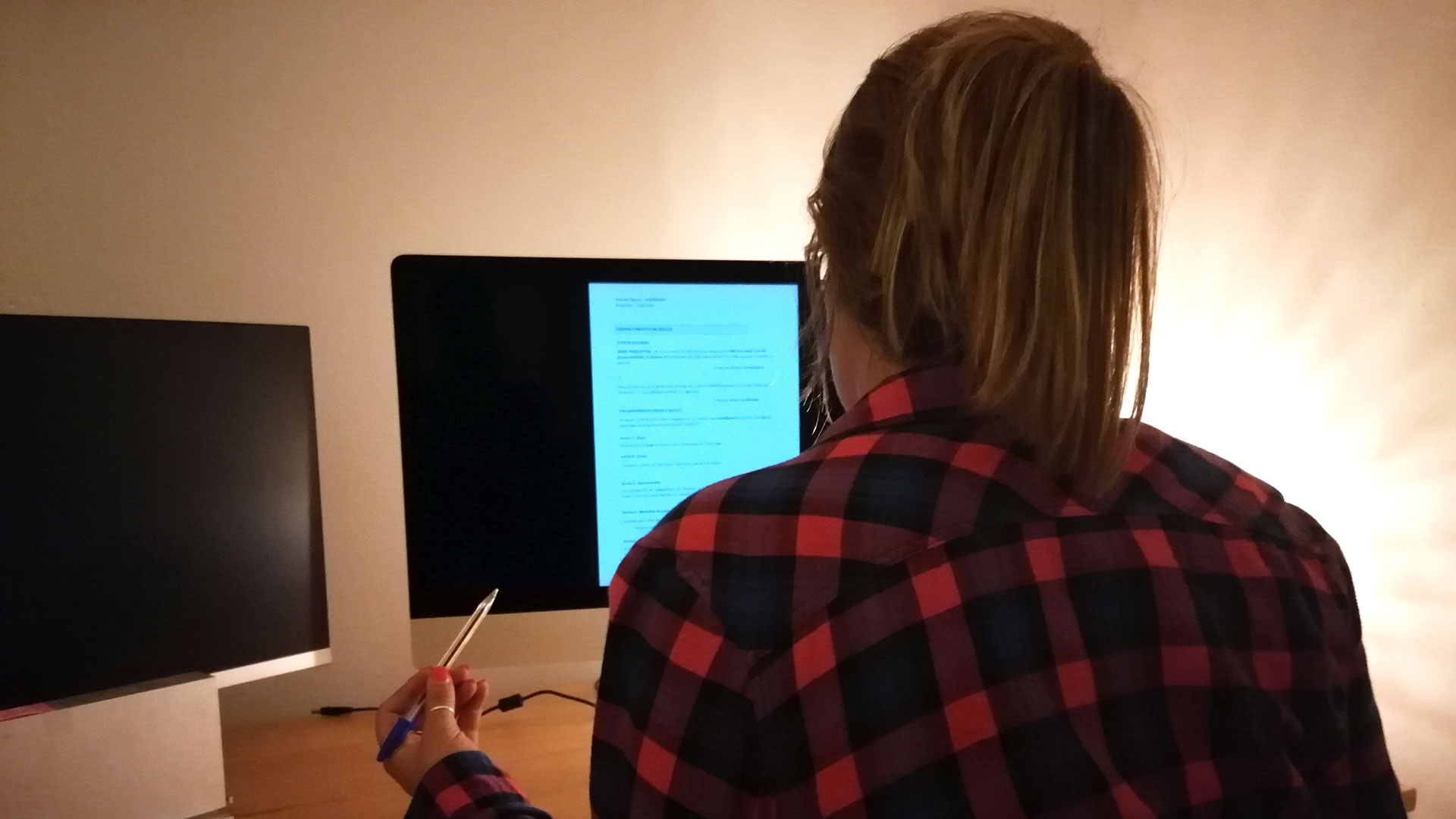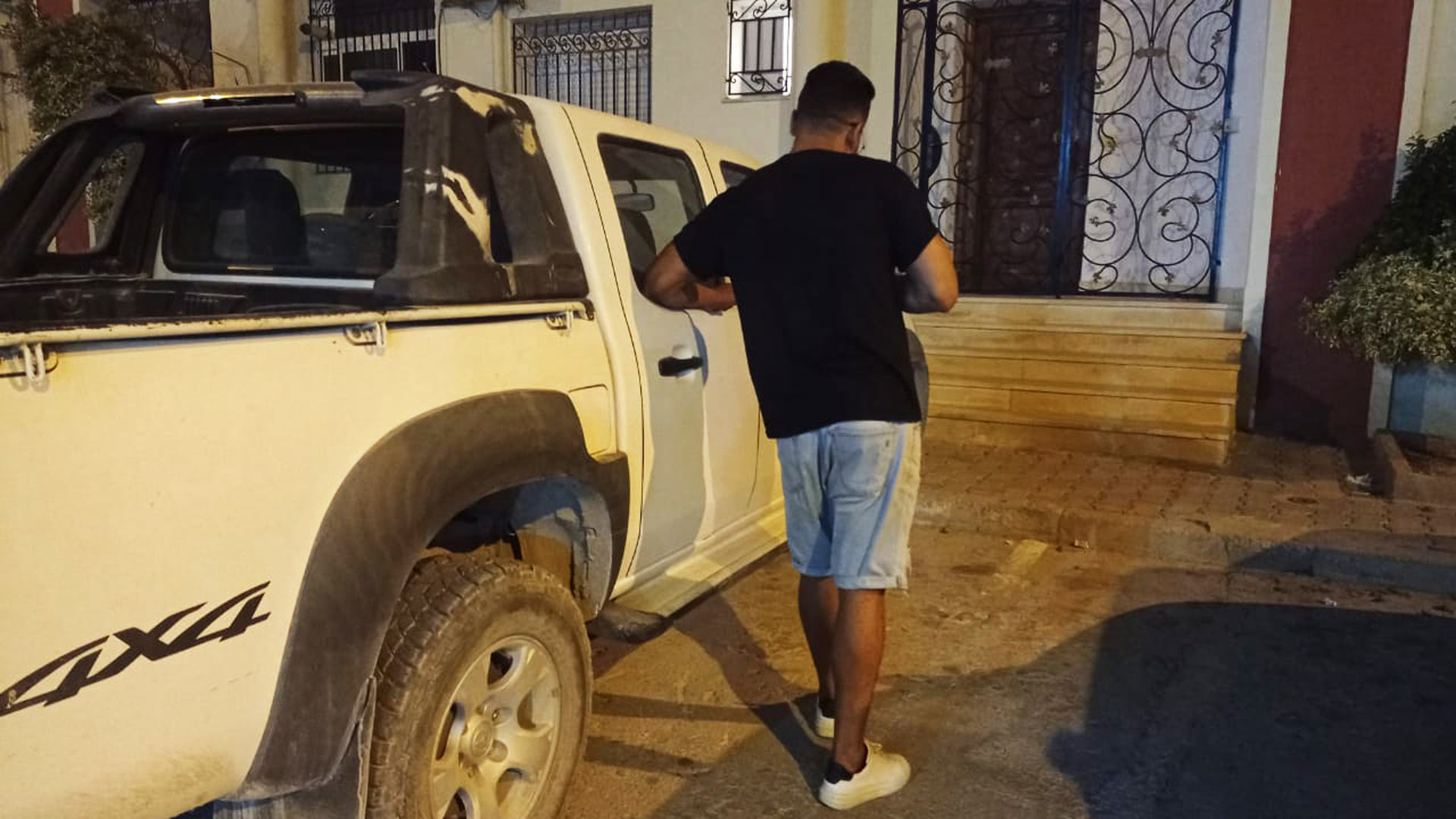Originally from Monastir, Mejdi is the youngest of three boys. His parents both work, his father in distribution, his mother in the textile industry.
"I never thought that I would become an engineer, until I graduated in engineering", he says in an amused tone. Gifted in mathematics, Mejdi ended up in a scientific preparatory school after his baccalaureate, "a bit by chance". He then went to an engineering school in Monastir, in order to stay close to his mother who fell ill after the death of one of his brothers.
His school offers a double master's degree in partnership with a French engineering school in the Paris region, for which Mejdi was selected. The young man was counting on a grant to finance his exchange, given his parents' modest income, but despite being ranked at the top of the class, no school would grant him one.
Consequently, he had to make arrangements with a family friend who lent him 5,000 euros. In exchange, Mejdi agreed to give up the family house if he is not able to pay it back.
“If that were to happen, I would feel guilty forever" , he confesses.
He collected an additional 1,900 euros from his personal savings and donations from his family.
However, once in France, the money quickly disappeared in the face of the extortionate cost of living in Paris. This is on top of the registration fees (5900 euros), putting Mejdi in a difficult situation. This exorbitant amount can be explained by the increase in tuition fees for foreign students at French universities since 2019. A government strategy named 'Welcome to France' leaves many foreign students with a bitter taste in their mouths.
An overview of his monthly income and expenses:
Thanks to an association that puts students in touch with private individuals, the young man managed to find accommodation upon his arrival. He then moved to the Maison de la Tunisie, a residence in the Cité Internationale, where he has lived since June 2020. His rent amounts to 495 euros per month, a price that is almost unbeatable for the capital.
As he considers phone and transport subscriptions as essential expenses for getting around Paris, Mejdi instead cuts back on his food budget.
During the first two months, he only spent 25 cents a day on food, amounting to half a baguette in the supermarket, which he ate with a little cheese.
“I lost ten kilos in two months”, he admits.
He then turned to the ‘Restaurants du Cœur’ charity, which distributes free packed lunches to be prepared at home.
A six-month paid internship was a momentary relief. Between July and December 2020, Mejdi was able to eat to his heart’s content for a few months, thanks to his €1,000 salary. He also allowed himself to buy cigarettes and beer to relieve the stress. However, half of the salary was used to pay back the loan, which did not allow any room for savings.
Since the end of the internship in January 2021, it has been back to the way things were before: the young man is once more eating thanks to food charities, although he continues to smoke and drink beer. "I don't smoke because I like it, I smoke because I have to smoke. I'm a compulsory smoker", he jokingly says.
Since he asked to extend his stay in France, Mejdi says he no longer receives the 180 euros per month in housing aid (APL), which is intended to reduce the rent. His status as a foreigner prevents him from receiving other social benefits: some, such as the RSA (Active Solidarity Income) require him to meet other criteria that he does not meet, so he has no income.
Mejdi keeps the rest of his expenses to a minimum. He spends a few dozen euros a month on hygiene products. Apart from a return trip to Tunisia, he has never spent money on leisure or holidays. He went to the cinema twice for free, benefiting from free tickets or invitations. As far as clothes are concerned, Mejdi relies on the two T-shirts and the pair of trainers he bought ahead of his internship, and the clothes he brought back from Tunisia.
A detailed overview of his monthly income and expenses:
Grey Area
"The majority of us come from modest families. We are 'Ouled el Hafiana' [sons of the bare feet], not the sons of ministers or CEOs", says Mejdi, speaking of all the young people who have come to France to do their masters like him.
He immediately started looking for a student job when he arrived, but all of his applications went unanswered, and the health crisis further complicated the search.
The financial insecurity, coupled with the pressure to succeed in order not to disappoint his family, impact both his physical and mental health.
"There are many students whose situations are so difficult that they stay in their rooms and do not leave. They seek comfort in cigarettes, a bit of alcohol, and once they get into the depression stage: into drugs", the young man laments.
Faced with financial difficulties, Mejdi finds comfort in his friends at the residence. A game of basketball or table tennis, a shared coffee, "in order to forget".
Future
Today, Mejdi's account shows a deficit of over 700 euros. The young man is in a bind. He has applied for about ten jobs, but has so far only been turned down. Time is running out: by July, he absolutely has to have finished paying back the loan, which he has put on hold since the end of his internship.
Despite these difficulties, Mejdi sees his future in France, convinced that his situation would be even worse in Tunisia. In his 12 square meter room, he clings to his dream: one day he will establish his own start-up.







